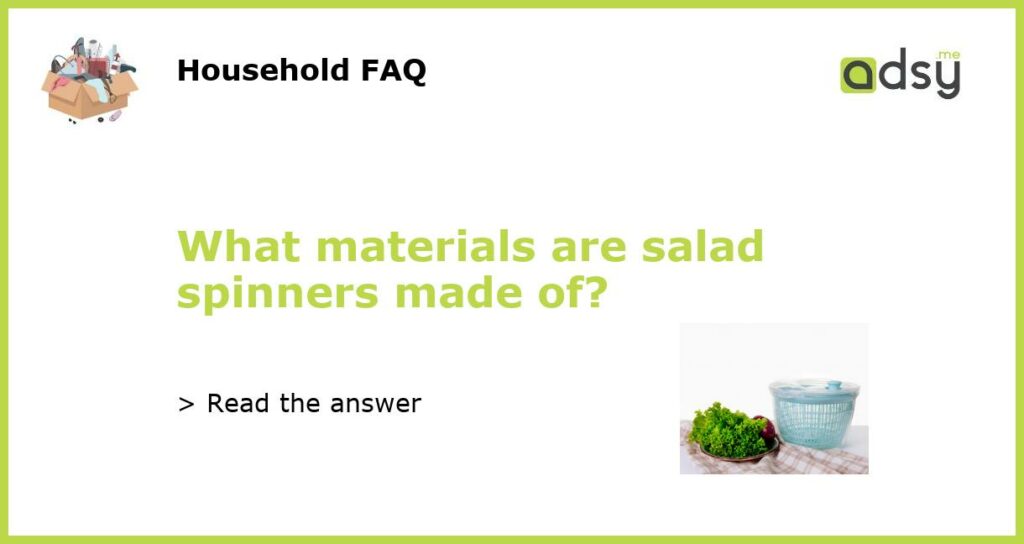What Materials Are Salad Spinners Made Of?
Salad spinners are a handy kitchen tool that helps to remove excess water from freshly washed salad greens and herbs. They consist of a bowl with a colander-like insert and a lid with a spinning mechanism. Salad spinners are typically made from a variety of different materials, each with their own advantages and disadvantages. Let’s take a closer look at the materials commonly used to make salad spinners.
Plastic
Plastic is the most common material used for salad spinners. It is lightweight, easy to clean, and economical. Most plastic salad spinners are made from BPA-free plastic, ensuring that they are safe for food contact. Plastic salad spinners are also less likely to break or crack, making them a durable choice for everyday use. However, some people have concerns about the potential for plastic to leach chemicals into food, especially when exposed to heat or acidic ingredients.
Stainless Steel
Stainless steel salad spinners are a popular choice among professional chefs and food enthusiasts. They are known for their durability and long lifespan. Stainless steel is resistant to rust and corrosion, making it a great option for those who want a salad spinner that will last for years. These salad spinners are also typically dishwasher-safe, making them easy to clean. However, stainless steel salad spinners can be heavier and more expensive than their plastic counterparts.
Glass
Glass salad spinners are a less common but still viable option for those who prefer a more traditional and environmentally friendly material. Glass is non-reactive, meaning it won’t interact with acidic dressings or oils, and it is easy to clean. Glass salad spinners are also aesthetically pleasing and can be used for serving as well. However, they are more fragile than plastic or stainless steel salad spinners and can be prone to breaking if mishandled or dropped.
Silicone
Some salad spinners feature a silicone bowl or lid. Silicone is a flexible and heat-resistant material that is often used in kitchen utensils and bakeware. Silicone salad spinners are lightweight and collapsible, making them easy to store in small kitchens. They are also easy to clean, as silicone is non-stick and dishwasher-safe. However, silicone can sometimes retain odors or flavors, which may transfer to your greens if not thoroughly cleaned.
Combination Materials
In addition to the materials mentioned above, some salad spinners combine different materials to maximize their benefits. For example, a salad spinner may have a stainless steel bowl for durability and a plastic or silicone colander insert for ease of use and cleaning. These combination materials allow for a more versatile and functional salad spinner, offering the best of both worlds.
In conclusion, salad spinners are made from a variety of materials, each with its own unique advantages and considerations. Plastic is the most common material due to its affordability and durability. Stainless steel offers long-lasting durability but can be heavier and more expensive. Glass provides an environmentally friendly option, though it is more delicate. Silicone is lightweight and easy to clean, but may retain odors. Lastly, combination materials offer a balance of different benefits. When choosing a salad spinner, consider your personal preferences and needs to find the material that suits you best.






